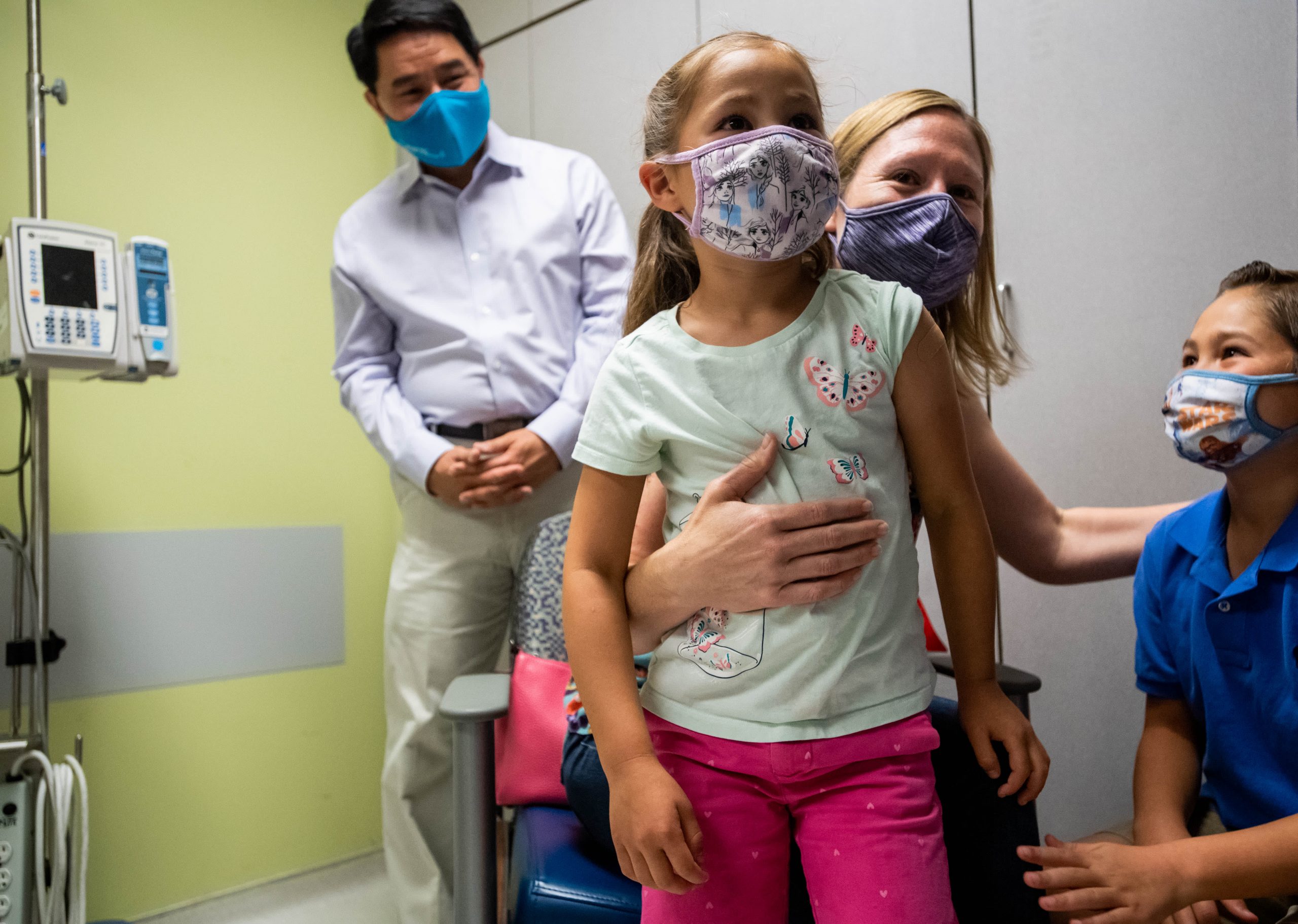DIGITAL MARKETING NEWS
Moderna says its Covid vaccine generates strong immune response in 6- to 11-year-olds
With her husband Stephen by her side Erin Shih hugs her children Avery 6, and Aidan, 11, after they got their second Moderna COVID-19 vaccines at Kaiser Permanente Los Angeles Medical Center on Friday, June 25, 2021.Sarah Reingewirtz | MediaNews Group | Getty ImagesModerna said Monday a smaller dosage of its Covid-19 vaccine is safe and generates a strong immune response in a study of children ages 6 to 11.Two 50 micrograms of the shot, half the dosage that’s given to adults, produced antibody levels that were 1.5 times higher than those seen in young adults, the company said in a press release, citing early data from a phase 2/3 trial.The shots were also safe and generally well-tolerated in young kids; the most common side effects were fatigue, headache, fever, and injection site pain, according to the company. The vaccine was tested on more than 4,700 children.Moderna says it plans to submit the data to the Food and Drug Administration, European Medicines Agency and other health regulators in the “near term.””We look forward to filing with regulators globally and remain committed to doing our part to help end the COVID-19 pandemic with a vaccine for adults and children of all ages,” Moderna CEO Stephane Bancel said in a statement.The new data comes a day before a key FDA advisory committee meets to discuss whether to recommend Pfizer and BioNTech’s vaccine for kids ages 5 to 11. The FDA could authorize the shots within days of the meeting, followed by the Centers for Disease Control and Prevention next week.FDA staff said late Friday that Pfizer’s vaccine appears highly effective at preventing symptomatic infections in elementary school children.Many parents say they are anxious to get their children vaccinated as kids have started the new school year with the delta variant still surging across America. The number of new Covid cases in kids remains exceptionally high, with more than 1.1 million child cases added over the past six weeks, according to the American Academy of Pediatrics.











